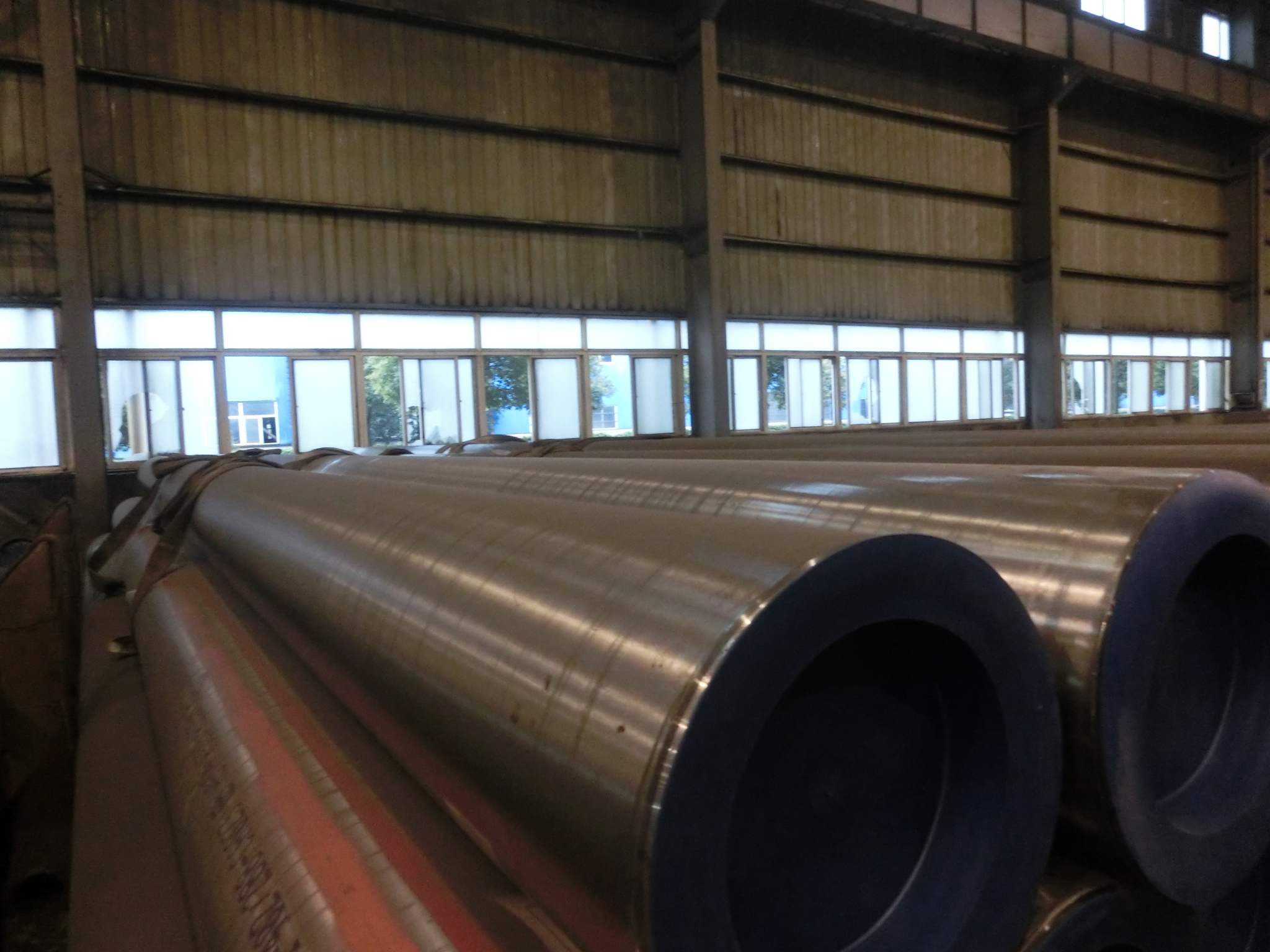First, the harm after mixing water into the oil
1. When a certain amount of water is mixed into the oil, the hydraulic oil will be emulsified into a white turbid state. If the hydraulic oil itself has poor anti-emulsification ability, after a period of time, the water can not be separated from the oil, so that the oil is always in a white turbid state. This white turbid emulsified oil enters the inside of the hydraulic system, which not only rusts the internal components of the hydraulic components, but also reduces the lubricating performance, so that the wear of the parts is intensified and the efficiency of the system is lowered.
2. After the iron metal in the hydraulic system is rusted, the rusted rust flows in the hydraulic system piping and hydraulic components, spreading and spreading, which will cause rust inside the whole system and generate more rust and oxide.
3. Water will also react with certain additives in the oil to produce pollutants such as precipitates and gums, which will accelerate the deterioration of the oil.
4. The action of sulfur and chlorine in water and oil produces sulfuric acid and hydrochloric acid, which aggravates the abrasive wear of the components, accelerates the oxidative deterioration of the oil, and even produces a lot of sludge.
5. These water pollutants and oxidation products become catalysts for further oxidation, which eventually lead to blockage or seizure of hydraulic components, causing failure of hydraulic system operation, clogging of distribution pipes, reduction of cooler efficiency, and clogging of oil filters. .
6. In addition, at low temperatures, water condenses into tiny ice particles, which also easily block the gaps and dead ports of the control elements.
Second, the oil mixed with various impurity particles
Solid contaminants in the oil are mainly present in the form of granules. Some of these impurities are left in the processing and assembly process of the components. Some of them are generated during the working process, and some are caused by the intrusion of external impurities. The hazards are:
1. Various particulate impurities in the oil can cause damage to the pump and motor. When the foreign particles enter the gear end face of the gear pump or gear motor and the cover side plates, the top of the tooth and the housing, or when the foreign particles enter the blade and the blade groove of the vane pump or the vane motor, the rotor end face and the oil distribution Between the disc, the stator and the rotor (top of the blade), or when the foreign particles enter the plunger and plunger cylinder bore of the plunger pump or plunger motor, the rotor and the oil distribution plate, the sliding shoe and the swash plate, the variable mechanism When sliding between the pairs, it may cause a stuck failure. Even if it does not cause a stuck failure, it will increase wear. Impurity particles can also block the oil inlet filter before the pump, causing cavitation or multiple failures.
2. Various particulate impurities in the oil will cause damage to the hydraulic cylinder. Particulate impurities can cause strain and wear on the piston and the cylinder block, the piston rod and the cylinder head hole and the sealing element, so that the oil leakage is increased, the volumetric efficiency and the effective thrust (tension) are reduced, if the particulate impurities are stuck to the piston or the piston rod Will cause the cylinder to not move.
3. Contaminant particles in the oil can cause damage to various valve components. Contaminated particles may cause the slide valve to become stuck or the throttle 121 to become clogged, causing the valve to malfunction. Even if there is no jam or blockage failure, the contaminated particles will cause the valve element to move prematurely, and the clearance will increase and the performance will deteriorate.
4, the pollutants to breed bacteria, aggravate the aging of the oil, make the oil black hair odor, and further pollution. Such a vicious circle has the following consequences:
(1) Contaminants block the oil filter, causing the oil pump to be sucked up, generating vibration and noise.
(2) Contaminants increase the friction of the cylinder or motor and cause creep.
(3) Contaminants completely disable the components such as servo valves that have poor resistance to contamination.
(4) Contaminants block the passage of the pressure gauge, so that the pressure cannot be properly transmitted and reacted.
This article is reproduced from Gu'an Xinyang Filter Factory: http://
From 2013 to 2015 year, we awarded the world`s largest P91 order from Reliance (single PO 8,000 tons P91), the final additional quantity together is up to 16,000 tons, Plus CS 11000 tons. Entire projects P grades are from Yangzhou Chengde
We can produce lots of the Alloy Steel Pipe that used on the Petrochemical and Refinery project and Gas cylinder project, such as the 4130 steel pipe, 4140 steel pipe,4142 steel pipe,4145 steel pipe,4147 steel pipe, P11 steel pipe ,P12 steel pipe ,P22 steel pipe ,P91 steel pipe,P92 steel pipe ,P5 steel pipe, P9 steel pipe and P36 steel pipe
Yangzhou Chengde Steel Pipe (YC) has been growing to a leading large diameter seamless pipe manufacturer with production range 8``-48`` in OD and wall thickness from 9.53 mm up to 140mm.
YC had established the post-doctoral research station since 2006 focusing on new material development such as P92, P91, X80. More than 29 kinds of new materials and products have won the national and provincial prizes from 2006 till now.

Alloy Steel Pipe
Alloy Steel Pipe,P36 Pipe,4145 Pipe,4147 Pipe
YANGZHOU CHENGDE STEEL PIPE CO.,LTD , http://www.chengdepipe.com